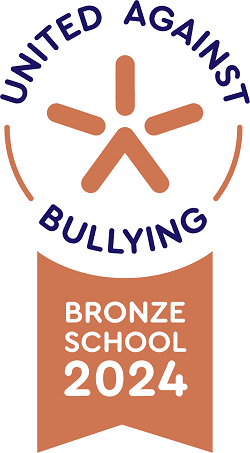Vision statement
Science education is an essential part of the powerful knowledge students will gain in order to contribute well to society, independent of their upbringing and background. Our current world is facing a number of scientific challenges; an understanding and appreciation of science plays a key role in ensuring our young people leave school to lead informed, purposeful lives. Science is necessary for students leaving our schools, so they can form opinions and draw their own conclusions around developments presented to them through the media and within the workplace. The study of science should develop analytical skills that make students valuable members of society, willing to ask challenging questions of the systems around them. Students will learn scientific theory in a variety of contexts, as well as investigating science through challenging lab work.
Science curriculum intent
Through building on key foundational knowledge and concepts, students will be encouraged to make links to wider contexts and apply knowledge in a variety of situations. They will develop a sense of excitement and curiosity about natural phenomena. They will begin to understand how science can be used to explain what is occurring, predict how things will behave, analyse causes and problem solve.
The aim of the science curriculum at ELA is to generate intrinsic motivation to want to discover more about science and provide them with the best possible grounding from which to pursue sciences beyond GCSE to A level and into future careers.
Our provision in science focuses on developing high levels of student independence and ensuring students are able to retrieve core scientific knowledge fluently. Empowered by this, students are able to progress at GCSE, acquiring and applying broader and deeper knowledge.
We emphasise procedural knowledge across curriculum and therefore prioritise the development of scientific skills, such as problem solving, scientific reasoning and experimentation. Students retain knowledge well when they test their knowledge during practical experiments or apply their knowledge to varying contexts.
Students will experience a practical approach to science, exposing them to use of a wide range of science equipment and ideas. They will have the opportunity to become confident and competent to independently use such apparatus in scientific work and question other people’s ideas. This will help develop fine motor skills, sequencing and planning skills, foster time management skills and raise awareness of the need for rules, routines and method to keep individuals and the environment safe at all times.
Students are encouraged to use and enhance their numeracy and literacy skills in a science-based context and reciprocal reading is encouraged. Our curriculum also provides opportunities to form opinions on the social, moral, spiritual and cultural aspects of science and wherever possible science content is linked to British values.
We believe that the knowledge learnt in science will help give students confidence to form opinions and engage more successfully in their community, both in real life and online, and will enable them to make better informed life choices in the future. This approach to learning also helps students to see the value of scientific knowledge as they see its use in the real world and is aligned with the emphasis on knowledge application within the science curriculum.
Overall our curriculum enables students to become scientifically literate as they gain deep expertise in the methods of science and gain a concrete understanding of key scientific ideas.

